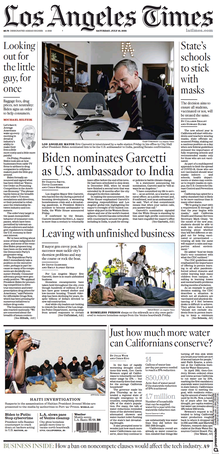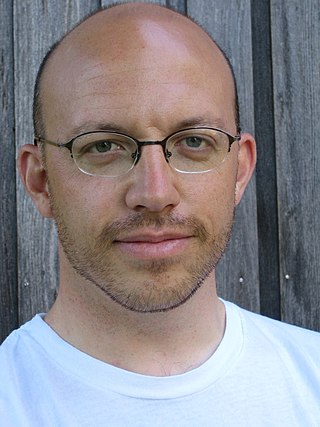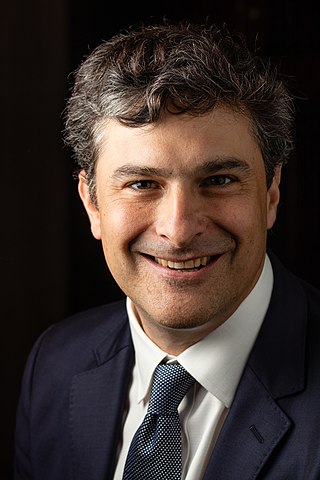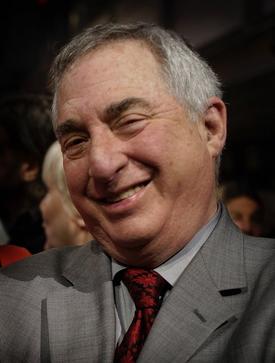Related Research Articles

The Los Angeles Times is a regional American daily newspaper that began publishing in Los Angeles, California in 1881. Based in the Greater Los Angeles area city of El Segundo since 2018, it is the sixth-largest newspaper by circulation in the United States, as well as the largest newspaper in the western United States. Owned by Patrick Soon-Shiong and published by California Times, the paper has won more than 40 Pulitzer Prizes.

Anthony Shadid was a foreign correspondent for The New York Times based in Baghdad and Beirut who won the Pulitzer Prize for International Reporting twice, in 2004 and 2010.
The following are the Pulitzer Prizes for 1939
Donald L. Barlett is an American investigative journalist and author who often collaborates with James B. Steele. According to The Washington Journalism Review, they were a better investigative reporting team than even Bob Woodward and Carl Bernstein. Together they have won two Pulitzer Prizes, two National Magazine Awards and six George Polk Awards. In addition, they have been recognized by their peers with awards from Investigative Reporters and Editors on five separate occasions. They are known for their reporting technique of delving deep into documents and then, after what could be a long investigative period, interviewing the necessary sources. The duo has been working together for over 40 years and is frequently referred to as Barlett and Steele.

T. Christian Miller is an investigative reporter, editor, author, and war correspondent for ProPublica. He has focused on how multinational corporations operate in foreign countries, documenting human rights and environmental abuses. Miller has covered four wars—Kosovo, Colombia, Israel and the West Bank, and Iraq. He also covered the 2000 presidential campaign. He is also known for his work in the field of computer-assisted reporting and was awarded a Knight Fellowship at Stanford University in 2012 to study innovation in journalism. In 2016, Miller was awarded the Pulitzer Prize for Explanatory Journalism with Ken Armstrong of The Marshall Project. In 2019, he served as a producer of the Netflix limited series Unbelievable, which was based on the prize-winning article. In 2020, Miller shared the Pulitzer Prize for National Reporting with other reporters from ProPublica and The Seattle Times. With Megan Rose and Robert Faturechi, Miller co-won the 2020 award for his reporting on United States Seventh Fleet accidents.

James Robert Clapper Jr. is a retired lieutenant general in the United States Air Force and former Director of National Intelligence. Clapper has held several key positions within the United States Intelligence Community. He served as director of the Defense Intelligence Agency (DIA) from 1992 until 1995. He was the first director of defense intelligence within the Office of the Director of National Intelligence and simultaneously the Under Secretary of Defense for Intelligence. He served as the director of the National Geospatial-Intelligence Agency (NGA) from September 2001 until June 2006.
Walt Bogdanich is an American investigative journalist and three-time recipient of the Pulitzer Prize.
Thomas Tamm is a public defender in Washington County, Maryland. He formerly worked as an attorney in the United States Department of Justice (USDOJ) Office of Intelligence Policy and Review during 2004 when senior Justice officials responded to the warrantless NSA surveillance concerning eavesdropping on U.S. citizens. He was an anonymous whistleblower to The New York Times, making the initial disclosures which led to reporters winning Pulitzer Prizes in 2006. Although Maryland agreed to drop ethics charges against him in 2009 relating to those disclosures, and the USDOJ announced it had dropped its investigation in 2011, the D.C. Office of Bar Counsel announced in January 2016 that it had brought disciplinary charges against Tamm relating to those events. Despite some controversy with respect to politicization of that office and similar charges being brought to silence attorney whistleblowers especially beginning in 2014, Tamm in March 2016 agreed to public censure by the District of Columbia Court of Appeals in order to allow him to proceed with his life and career.

Mark Mazzetti is an American journalist who works for the New York Times. He is currently a Washington Investigative Correspondent for the Times.

John Aloysius Farrell is an American author and historian. He has written biographies of U.S. President Richard Nixon, Senator Ted Kennedy, House Speaker Thomas "Tip" O'Neill, and defense attorney Clarence Darrow. He is a former White House correspondent and Washington editor for The Boston Globe and a former Washington bureau chief and columnist for The Denver Post.

Choe Sang-Hun is a Pulitzer Prize-winning South Korean journalist and Seoul Bureau Chief for The New York Times.
Bertrand Albert Andrews Jr. was a Washington-based reporter for the New York Herald Tribune who won the Pulitzer Prize in 1948 for his article "A State Department Security Case."
Vance Henry Trimble was an American journalist. He won a Pulitzer Prize for national reporting in recognition of his exposé of nepotism and payroll abuse in the U.S. Congress. Trimble worked in the newspaper business for over fifty years. He was inducted into the Oklahoma Journalism Hall of Fame in 1974. He published numerous books after his retirement.
James Ray Polk was an American journalist, known for his investigative reporting and coverage of American political corruption and fraud. Over the course of his career, he covered the Raymond Donovan investigations, the Bert Lance controversy, the Abscam scandal, and the financial dealings of John Zaccaro, husband of 1984 Democratic vice presidential nominee Geraldine Ferraro.

The 1938 United States Senate election in Kentucky took place on November 8, 1938. Democratic Senator and Senate Majority Leader Alben Barkley was re-elected to a third term in office over Republican John P. Haswell. The true challenge to Barkley came in the Democratic primary, where he faced Governor Happy Chandler.

Andrew Jay Schneider was an American journalist and investigative reporter who worked for the Pittsburgh Press and Seattle Post-Intelligencer as a public-health reporter. He received back-to-back Pulitzer Prizes while working for the Press: one in Specialized Reporting in 1986 with Mary Pat Flaherty, and another for Public Service with Matthew Brelis and the Press in 1987. Schneider also co-authored a book about an asbestos contamination incident in Libby, Montana, entitled "An Air That Kills".

Tom Hamburger is an American journalist. He is an investigative journalist for The Washington Post. He is a 2018 Pulitzer Prize and George Polk Award recipient and a political analyst for MSNBC.
William Smith White was an American journalist between the 1920s and 1970s. During his career, White worked with the Austin Statesman from 1926 to 1945 and the New York Times from 1945 to 1958. Upon leaving the New York Times in 1958, White spent the remainder of his journalism career with the United Feature Syndicate until his 1973 retirement. Outside of journalism, White was a biographer who won the 1955 Pulitzer Prize for Biography or Autobiography for The Taft Story. After writing works on Franklin D. Roosevelt and Lyndon B. Johnson throughout the 1960s, White received the Presidential Medal of Freedom in 1969.

William Robert Neikirk was an American journalist, editor, and author. He spent 48 years as a reporter and served as White House correspondent for the Chicago Tribune during the Clinton administration.
The Raymond Clapper Memorial Award, later called the Washington Reporting Raymond Clapper Award, was an American journalism award presented from 1944 to 2011. Named in honor of Raymond Clapper (1892–1944), the award was given "to a journalist or team for distinguished Washington reporting."
References
- New York Times: "Thomas L. Stokes, Newsman, 59, Dies," May 15, 1958, accessed December 13, 2010
- Heinz Dietrich Fischer, Erika J. Fischer, Complete biographical encyclopedia of Pulitzer Prize winners, 1917-2000 (2002)